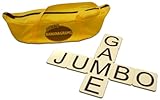- There is now a real login system, giving you the option to either assign a password to your existing WordSquared username or link your Word2 game to one of a number of other accounts (Google, Twitter, Facebook, AIM, Yahoo, or OpenID). Which means no more worrying about losing your game due to site upgrades. And your game is no longer tied to a particular browser via cookies, so you can log in anywhere and play.
- The game now tracks and displays statistics about your games, like the longest word that you have formed (longest since statistics started, that is).
- Whenever you lay down a word, the resulting score (or scores, when you form multiple words) appear on the screen at the location of the word and float gently upward before disappearing. It's a nice, elegant effect. (This turns out to be the way HTML5 browsers display word scores. Current Firefox versions (>3.6.9 but <4.0) do not have any HTML5 capability built in, not even as an option, so I prefer Safari for Word2.)
- WordSquared now has achievements that you can earn. Some are based on the number of words that you have formed, but I knew right away which one I wanted to get:

I also picked up this one:

Getting a rack of Is was pretty easy, but to get to the T Party, I had to unload one last J. It can be tricky to find a place to dump a J. I wound up scrolling way back along the path of words that I have made, trying to find an AM or OUST or OWL or an UMP or a UKE. (This is where it would be nice to have a search function to let me jump to particular words I've already formed). Eventually I found an unobstructed INN and went with JINN. Which seems like an appropriate way to get to the T Party, as I can totally imagine Mr. T playing a genie.
Achievements are not retroactive, so you get to earn them all (even easy ones like "Get a rack with no vowels") for the first time.
The achievements stay on your screen until you dismiss them, so you can continue playing with the cartoon Mr. T overlapping your board as long as you like, pitying your foolish moves. - And finally, while it's not a new feature, I just discovered that since WordSquared is an HTML5 game, it is possible to zoom in and out just by changing the font size. This is really cool and often preferable to scrolling the board since it can be done quickly with a keystroke.
Also, Word2 now produces sound effects when you lay down tiles and score points. You can toggle them on or off with the speaker icon in the lower right.
The Word2 coders have formed a company called Massively Fun, and their site says that Word2 is to be just the first of their games. Good luck guys!
Further reading:




![[French Bananagrams]](http://3.bp.blogspot.com/-qc0_1zkWFTY/UJVp8FEnQ8I/AAAAAAAAAl8/sIBlipGIDgQ/s400/FrenchBananagrams-smaller.png)
![If I stay there can be no party. I must be out there in the night, staying vigilant. Wherever a party needs to be saved, I'm there. Wherever there are words that need anagramming, I'm there. But sometimes I'm not because I'm out there in the night staying vigilant, watching, lurking, running, jumping, hurdling, sleeping. No, I can't sleep. You sleep. I'm awake. I don't sleep. I don't blink. Am I a bird? No. I'm a banana. I am Bananagrammer. Or am I? Yes, I am Bananagrammer. [applies chapstick]](http://3.bp.blogspot.com/-dSRky9uBohU/TlcvRsF73SI/AAAAAAAAAhU/sVIGfVGu7eA/s400/BGR-plot-medium.png)
